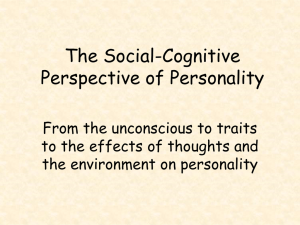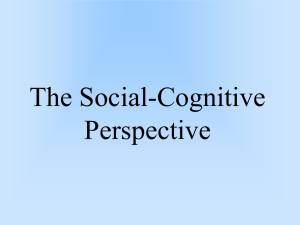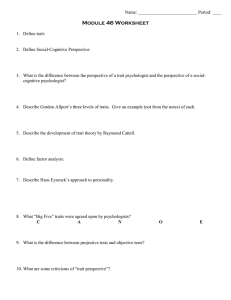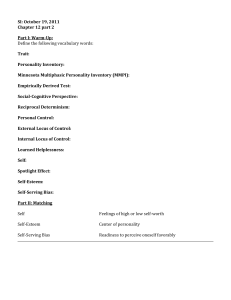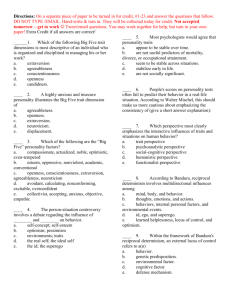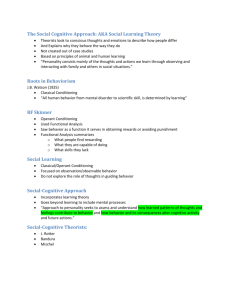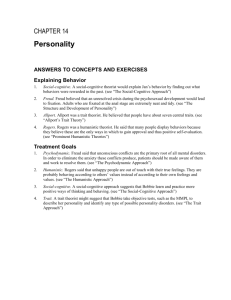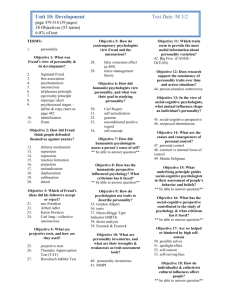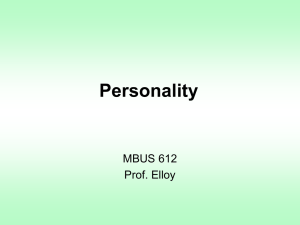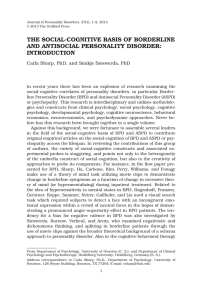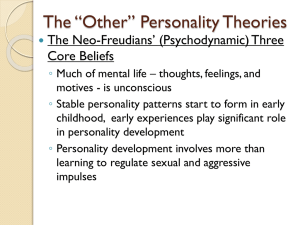The Social-Cognitive Theory of Personality
advertisement
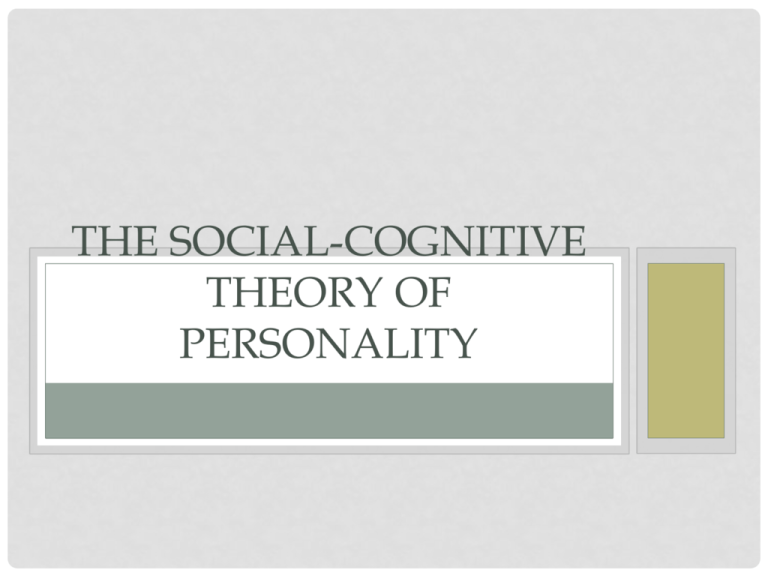
THE SOCIAL-COGNITIVE THEORY OF PERSONALITY SOCIAL-COGNITIVE THEORY OF PERSONALITY: DEFINITION • Proposed by Albert Bandura • Emphasizes the interaction of our traits with our social situations • We learn many of our behaviors through conditioning or observing others and modeling our behavior after theirs (“social” part) • Also draws off of the work of Skinner • Helps us form habits • Also emphasize the importance of mental processes: what we think about our situations affects our behavior (“cognitive” part) KEY ELEMENTS OF SOCIAL-COGNITIVE THEORY OF PERSONALITY RECIPROCAL DETERMINISM • Interacting influences of behavior, internal cognition, and environment (Bandura) • Children’s TV-viewing habits (past behavior) influence their viewing preferences (internal factor), which influence how television (environmental factor) affects their current behavior • Reciprocal: two or more parties exchanging something • Determinism: your behavior is determined by… SELF-EFFICACY • Performance Standards: Standards that people develop to rate the adequacy of their own behavior in a variety of situations • Those who succeed in meeting their own internal performance standards develop self-efficacy • Self-Efficacy: Expectancy that one’s efforts will be successful • A person’s level of confidence in her or his own abilities to gain reinforcement • Can be situation specific: abilities in science v. rock climbing ability PERSONAL CONTROL (JULIAN ROTTER) • External Locus of Control: perception that chance or outside forces determine a person’s fate • When could this be helpful? • Internal Locus of Control: people who believe that they control their own destiny • Attitude, preparation, effort – all controlled by the individual • Who achieves more in school and work? • Internals • Who acts more independently? • Internals • Who enjoys better health and feels less depressed? • Internals Locus: a particular position, point, or place ASSESSING BEHAVIOR IN SITUATIONS • How do social-cognitive theorists assess personality? • Often through observation in realistic situations • Best means of predicting future behavior is through examining a person’s past behavior in similar situations • Best predictor of future grades is past grades • Best predictor of future job performance is past job performance EVALUATING THE SOCIAL-COGNITIVE THEORY • More than other theories, it builds from psychological research on learning and cognition • Critics: • Focuses so much on the situation that it fails to appreciate the person’s inner traits • Where is the person? Human emotions? • Traits have been shown to predict behavior at work, love, and play
